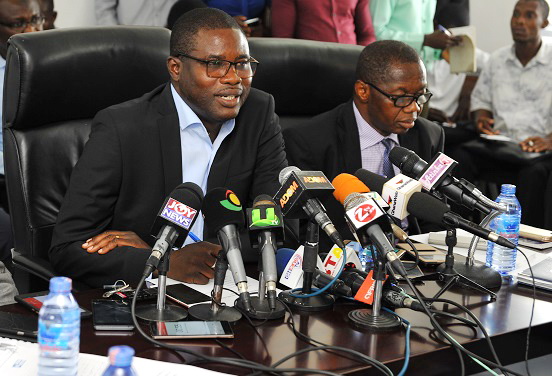
Let’s sustain gains of Operation Vanguard, mining ban
The Ghana Water Company Limited (GWCL) has confirmed that the two-year ban placed on small-scale mining, as well as the Operation Vanguard exercise carried out by a joint police and military task force to stop the pollution of water bodies, has yielded positive results.
As a result of that exercise and the campaign launched by the media against illegal mining, many of the GWCL’s water treatment plants which were shut down due to the high level of pollution of water sources are now up and running at full steam.
It is very refreshing to learn that four treatment plants which were shut down last year as a result of the high turbidity of the Birim River are all currently operational.
The treatment plants in Konongo, Kyebi, Bunso and Anyinam, which were among those heavily affected, are back in operation.
We doff our hats to the government for the bold step it took, even in the face of becoming unpopular, to ban small-scale mining and also outlaw illegal mining.
That has largely contributed to forestalling further destruction of our rivers, such as Ankobra, Birim and Pra.
However, the Daily Graphic believes that we cannot go to bed yet and assume that everything is back to normal.
While we still have to grapple with the vast tracts of land that have been destroyed by ‘galamsey’ and improper mining methods, the GWCL has already hinted that the on-and-off turbidity of the Birim River suggests that “some galamsey operators are still around the forest belt close to the Bunso and Anyinam area and are causing the deterioration of raw water”.
We should not also discount the concern expressed by the GWCL about the effects small-scale mining could have on the water bodies, since the ban on illegal mining has been lifted.
Rather, we pray that the comprehensive policy framework that the Minister of Environment, Science, Technology and Innovation, Prof. Kwabena Frimpong-Boateng, said last December had been successfully developed to regularise small-scale mining across the country would not just be there in name.
The framework must be made to work to sustain the massive gains made during the two-year ban and the deployment of Operation Vanguard at great cost to the nation.
Effluent from industries, sand winning, the indiscriminate dumping of refuse into water bodies, as well as fishing and farming activities along river bodies, also contribute to pollution of our water bodies and we ask industries and individuals engaged in such activities to stop those acts, so that the treatment plants will continue to produce enough water for everybody.
All Ghanaians living everywhere in the country must have access to potable water and that is what will indicate the government’s commitment to ensure 100 per cent access to potable water by the people.
The Daily Graphic also urges the government to see to the indebtedness, as well as other challenges, of the Teshie Water Desalination Plant, as they could lead to the collapse of the plant.
If it is a renegotiation of some terms in the contract signed with Messrs Befessa that will make the plant operational again, we encourage the government to go through with it to the end, so that people living at Teshie and its environs could benefit from the huge investment.
It is our belief that when all that is done, coupled with the building of new treatment plants and the expansion of existing ones, access to water across the country will be tremendously improved.
